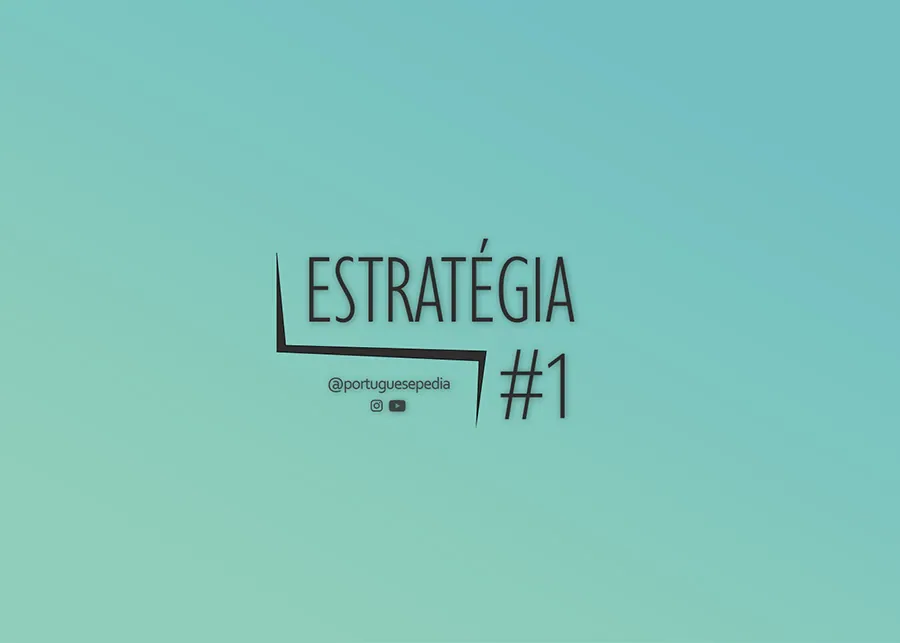
The One Strategy You Need to Succeed as a Language Learner
Learning a new language is beyond doubt an exciting and fulfilling experience. But it can also become challenging and overwhelming for most of us, easily.
There are many tips to help us learn new languages as efficiently as possible. If I had to pick only ONE piece of advice, though, that would be “consistent practice,” meaning daily exposure to your target language over time.
See, consistent, daily practice is key to language learning because it helps us keep motivated, build momentum, and make steady progress. When we consistently study and practice our target language – be it Portuguese, Mandarin, or Somali – we can better retain what we learn and build on it.
Now, many language learners struggle with getting started and then finding time to practice. Do they really want to learn that language? Are they willing to commit and prioritize that endeavor? These are all important questions to ask and we should have clear answers to them.
In my opinion, though, being willing to commit, alone, may not be enough to cut it. I know of many people who genuinely want to learn Portuguese but keep putting it off. What is preventing them from getting started?
Procrastination…
In the face of a new project – be it learning a new language or something else – we often see a Big Bear coming at us with a wide-open mouth, roaring, as if he’s going to eat us up. And so we keep putting it off.
But we don’t need to bear the whole bear all at once (pun intended). Instead, we can start chipping away at it. To get started, you may need to start small.
Crucially, keep in mind that daily practice doesn’t imply studying for several hours every day. If you devote fifteen minutes or half an hour to sit with it, you’ll be right on track to create a solid foundation. What is important is to keep it going, daily.
That brings us to the question that matters most: after getting started, how do we stay consistent with practicing every day?
While some people will say that setting clear goals will make you stick to your plan, I find that this is often not the case. Setting goals is after all not that hard. If all we needed to succeed was to define and write down the desired outcomes, anyone could easily become successful. There must be something else to it…
Sticky habits.
But how do we create daily habits that stick with us?
Several books have been written on this topic (so important it is) and I consider Atomic Habits by James Clear one of the best. According to the author, when trying to create a new habit you should:
- make it simple and easy
- make it obvious and accessible
- make it interesting and attractive
Say that you are learning Portuguese and want to establish a daily morning routine that will expose you to your target language every day. Also, say that you already have the habit of checking the news on your phone as you eat your breakfast.
If you, in addition to that, also commit 5 minutes to check the news on a Portuguese online news outlet, you’ll most likely succeed in establishing that new routine.
All it took was a tiny tweak that agreed with the outlined principles. Simple to implement because you were already checking the news at breakfast anyway. Accessible because you don’t need anything else than your phone and internet connection (that you already have). Interesting because you were assumedly already fond of consuming news (and you may as well be fond of learning about the country where your target language is spoken).
There are even ways to increase your daily exposure to your target language without involving the adoption of new habits at all. For instance, you could default your phone and apps to Portuguese. Boom! 100% built-in daily exposure.
This last example reminds me of an article that I wrote some time ago listing several Quick Tips for Language Learners, some of which will help you increase exposure to your target language almost effortlessly.
Let me conclude this brief article by reiterating that, if I only were allowed to give one piece of advice to language learners, that would be a consistent, daily practice. To achieve that, we need to get good at creating daily habits and routines that’ll stay with us. I also left a few suggestions to attain just that.
There is, of course, much more to say concerning strategies to increase the efficacy – and sustainability, too – with which we can learn languages. If you want to dive deeper into that topic, go on and read this one: The Best Way to Learn Portuguese: Key Strategies to Become Fluent.

Olá! I'm Pedro and I'm your Portuguese teacher.
Ready to unlock the beauty of European Portuguese? Portuguesepedia is your key! This all-in-one platform provides a wealth of learning resources, from bite-sized video lessons to immersive idiomatic dips. Perfect your pronunciation and aural comprehension with listening drills and solidify your grammar with in-depth articles. Start your Portuguese journey today!
Share this article
Get my guide "Key Strategies to Learn Portuguese" for FREE.
